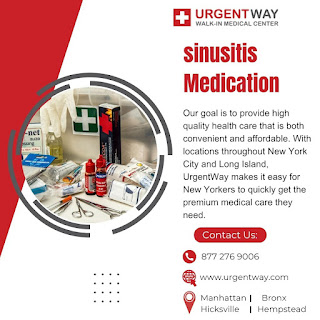How does eczema in children differ from eczema in adults, and what treatment approaches do you recommend for each?
How does eczema in children differ from eczema in adults, and what treatment approaches do you recommend for each?
Introduction:
Eczema is a
multifaceted ailment that is impacted by immunological, environmental, and
hereditary factors. It is a component of the "atopic triad," which
also consists of hay fever and allergic rhinitis. The state is identified by:
Red, puffy skin indicates inflammation.
Itching, or pruritus: Usually severe, causing scratches and additional skin
damage.
Skin red areas are called erythema.
Xerosis: Excessively parched skin.
Lichenification: Excessive scratching that results in thicker skin.
Although eczema cannot be spread, it can have a serious negative impact on a
person's quality of life by interfering with sleep, causing emotional anguish,
and making social situations difficult.
Distinctions Between Childhood and Adult Eczema
1. Child prevalence and onset:
Children are more likely to get eczema, and many instances start in infancy. In
the world, it impacts between 10–20% of youngsters. Most kids get eczema prior
to the
Adults: Only
1-3% of adults have eczema, making it a less common condition. Although less
prevalent, adult-onset eczema can occur and is frequently linked to underlying
skin problems or environmental causes.
2. Location and Skin Presentation of Children:
Young children (0–2 years): Red, scaly patches on the cheeks, scalp, and
face are a common sign of eczema. It has the potential to spread to the arms,
legs, and trunk, among other body regions.
Young Children and Toddlers (2–12 years): Usually, the ailment affects
the elbow, knee, wrist, and ankle creases. Scratching can cause lichenification
of the skin to become more noticeable.
Adults:
Flexural Areas: The inner elbows, behind the knees, the neck, and the
wrists are among the flexural areas that are frequently impacted by eczema.
Hand Eczema: Adults are more likely to develop hand eczema, particularly
if they work in a setting where allergens or irritants are present.
Chronic Lichenification: Recurrent scratching caused by long-term eczema
can result in a persistent thickening of the skin.
3. Risk factors and triggers
Kids:
Genetic Factors: The likelihood is increased by a family history of hay
fever, asthma, or eczema.
Food allergies: Eggs, milk, peanuts, soy, and wheat are common causes.
Pollen, dust mites, and pet dander are examples of environmental allergens that
might worsen symptoms.
Irritants: Synthetic textiles, detergents, and soaps can exacerbate
eczema.
Adults:
Stress: An important cause of adult flare-ups of eczema is emotional
stress.
Hormonal Shifts: Women may suffer flare-ups throughout their menstrual
cycles or during pregnancy.
Environmental Factors: Eczema can be brought on by exposure to extreme
weather, pollutants, and irritating substances at work.
Contact Allergens: Certain cosmetics and metals, such as nickel, can
result in contact dermatitis.
4. Children's Psychological Impact:
Social and Emotional Difficulties: Children with eczema may have social anxiety
and low self-esteem, especially if they are teased or bullied.
Sleep disturbances: Itching and discomfort can cause sleep disturbances,
which can impact mood and general development.
Adults:
Mental Health: Because eczema is a chronic disorder, adults with it may
have anxiety, depression, and a lower quality of life.
Social Interactions: Having visible eczema can cause social distancing
or shame, as well as lower self-esteem.
Treatment Strategies for Children's Eczema Given the fragility of their skin
and the possibility of long-term effects, treating children's eczema
necessitates a holistic and sensitive approach. The following are some suggested
therapeutic approaches:
1. Moisturization Importance: The foundation of treating children's
eczema is regular moisturization. It lessens dryness, helps stop flare-ups, and
restores the skin barrier.
Suggestions:
·
Apply hypoallergenic, fragrance-free
moisturizers.
·
Apply right away to seal in moisture after
taking a bath.
·
For optimal hydration, use thick creams or
ointments instead of lotions.
2. Topical
Corticosteroids: Their
usefulness in lowering inflammation and managing flare-ups cannot be
overstated.
Suggestions:
For the shortest amount of time required, use the steroid with the lowest
potency. Apply in accordance with a doctor's instructions to prevent any
negative consequences, such as skin thinning.
Procedural
Expertise in Skin Treatment:
At UrgentWay,
our healthcare providers are equipped to perform various medical examinations
and skin procedures related to skin disorders, UV damage, and aging. We offer
allergy testing, which involves pricking the skin with a small amount of an
allergen to determine if a reaction occurs. Additionally, we provide
photodynamic treatment (PDT), a type of light therapy that can be used to treat
acne and other skin disorders by eliminating germs. Our providers can also
remove skin cysts through drainage or a minimally invasive procedure.
Conclusion:
Because eczema is a complicated disorder, both adults and children need to
receive individualized treatment. Effective management requires an
understanding of the variations in presentation, triggers, and impact among age
groups. Eczema sufferers can better control their symptoms and enhance their
quality of life by combining medicinal therapy with lifestyle changes and
patient education.
.png)



Comments
Post a Comment